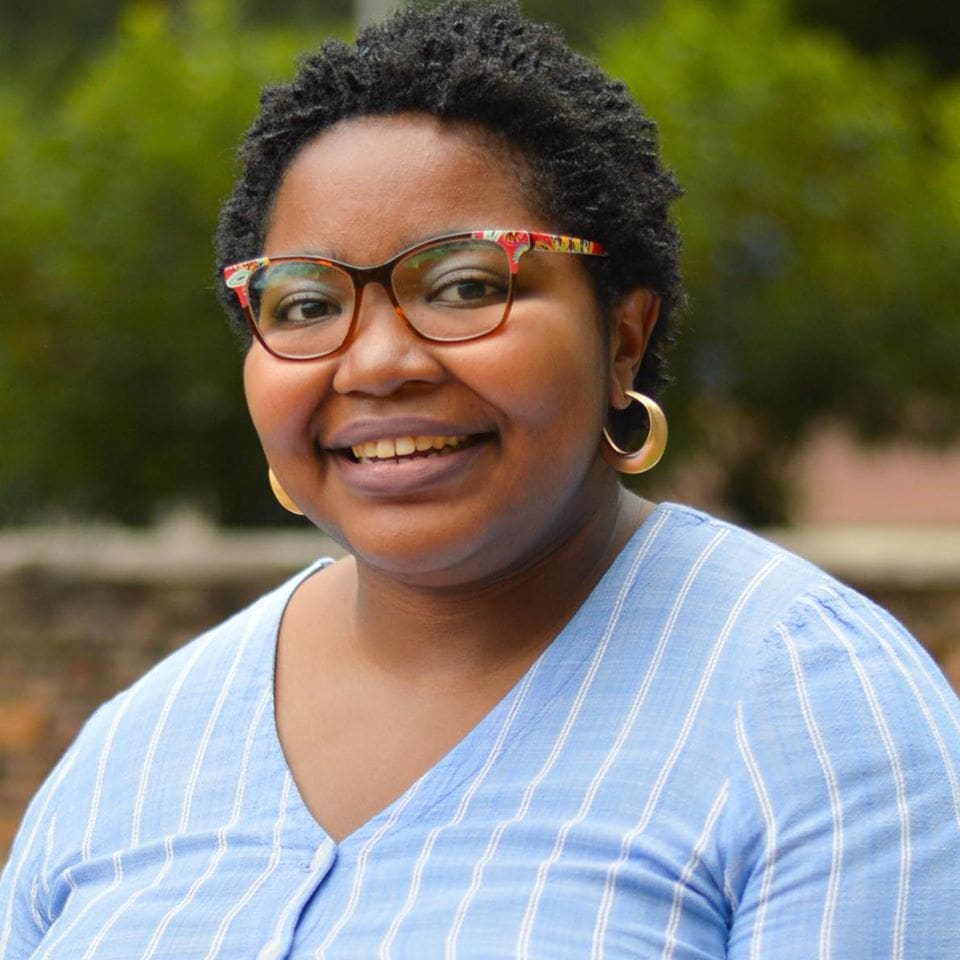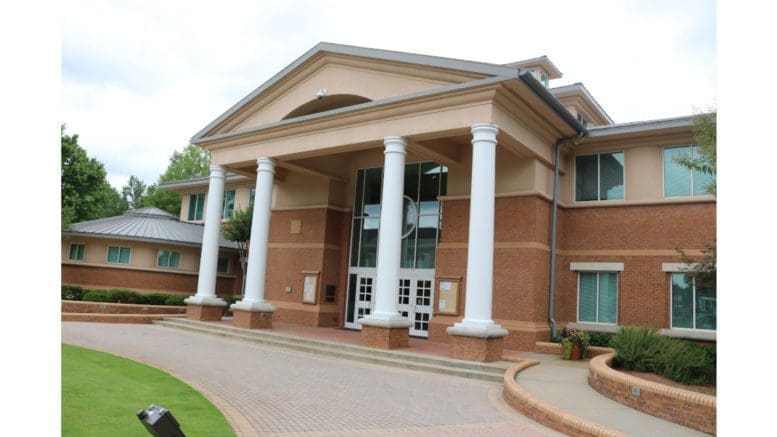By Arielle Robinson
At their regular meeting Monday evening, Smyrna’s City Council voted 4-2 to relocate Aunt Fanny’s Cabin to a Carroll County farm location with one provision in case the deal does not go through.
City Councilmembers Susan Wilkinson and Charles Welch voted in opposition.
Councilman Travis Lindley announced that the proposal made by Ashley Limousin Farms, a seed stock cattle company, was the one clear option to accept.
Lindley said there is a move date of no later than July 1.
The Courier reported last week that four proposals were submitted to the city by the March 16 deadline.
Smyrna officials said Monday night that three out of four proposals met city criteria.
The provision for the relocation is that if the city enters negotiations with Ashley Limousin Farms and the beef farm is unable to complete the move as outlined or negotiations break down, the city will look at the two remaining proposals that met the city’s criteria.
February 1 was the original deadline for bids but was extended in light of public opposition and no one making an acceptable proposal by the deadline.
The council initially voted in December last year after a task force recommendation to demolish the building unless someone takes it off city property.
The city has offered the building for free but now Ashley Farms must pay to move it.
Monday, city councilors said they appreciated the passion that people on all sides have put into the issue of the dilapidated cabin.
“There has not been a meeting that has gone by since December that there has not been public engagement,” Lindley said. “ … I wish that the passion that has been on display here in the last couple of weeks had been there over the last 24 years.”
Lindley also said, “the only reason we are here tonight is because the building was in a state of disrepair to where the recommendation was to either condemn it and get rid of it or spend copious tax dollars to fix it.”
Lindley said that repairing the 1890s sharecropper’s cabin would have amounted to between $400,000 to $600,000.
Dr. Lewis Wheaton, the only Black city councilor, said he believes that common ground can be found between those who wanted the cabin to stay and those who wanted it gone.
Honoring Fanny Williams through memorialization can serve as that common ground, Wheaton said.
Mayor Derek Norton has created in recent months a committee composed of city councilors and residents that are now looking at ways to put a memorial to Williams in the place the cabin currently is.
“I am supportive of the Ashley Farms proposal, I think it’s a good one for us to consider,” Wheaton said. “And being able to move forward with that allows us to do something unique, right? We’re able to actually strike a medium where the cabin isn’t destroyed, it’s just relocated, and we’re still able to as a city on that site potentially honor her and honor so many other people. It’s this one space I think where there’s actually a unique compromise point that was a little unexpected and hopefully, we can move forward collectively in that way.”
Councilman Tim Gould, who is on the committee to memorialize Williams along with Wheaton, said the group is looking at suitable ways to honor her.
He mentioned the formation of “living programs” and educational tools potentially in the making.
Gould also said there were two core issues about the cabin he was concerned over.
“One is the cost to refurbish the cabin, it’s a lot of money. And as Councilmember Lindley said, we probably didn’t need to be in this position but we are,” Gould said. “And secondly — probably more importantly — even with the number of folks in this room that are supportive of having an alternative solution to the cabin, there’s a lot of folks in the city that don’t see it that way. This cabin was used as a restaurant and used the likeness of Fanny Williams for almost 45 to 50 years after her death in 1949.
“It was for the glorification, in my opinion, of [an] antebellum era that’s long gone and distasteful, to say the least. [Aunt Fanny’s Cabin] practiced demeaning marketing habits of young African-American boys and the list goes on, so with some positive things around the cabin, there’s also some really strong negative aspects that many people see,” Gould said.
The world-famous former restaurant featured Black boys serving white patrons with boards around their necks. Previous owners were said to direct Black children in singing songs about the South rising again.
Both Wilkinson and Welch said they disagreed with the process the city took in selecting the winner of the bid.
Wilkinson said she had only heard about accepting the Ashley Farms proposal as Lindley announced it that night, just a few minutes ago.
“I’m disappointed about that process and I’ve been disappointed about the process all along,” Wilkinson said. “I also heard Councilman Lindley talk about the passion that is here in the community and he wishes that that [passion] had come out before now, but to me, it’s not really too late. The discussion needed to happen and it is happening.”
The Coalition to Save Aunt Fanny’s Cabin, an interracial group of Smyrna residents that want the cabin to remain in its place next to the Smyrna History Museum, submitted two of the four proposals.
One proposal was to keep the cabin where it was and the other was to transfer it to Rose Garden Hills, a historically Black neighborhood in the city.
In addition to the coalition and Ashley Farms’ bids, Whey to Go owner and coalition member Karen Shockley submitted a proposal.
The coalition has hosted multiple events on Sundays and Thursdays, including a “circle of strength” where the goal is to encircle the former restaurant and show racial solidarity.
They say that keeping the cabin where it is honors the memory of Williams, the Black servant to Smyrna’s Campbell family who by some reports was a civil rights activist.
A few coalition members spoke during public comment at the end of Monday night’s meeting, including Pat Burns, who said she has made peace with the council’s decision.
Still, she said Williams’ story cannot be told without the building.
“I’m thankful it was not bulldozed,” Burns said. “ … Without the cabin walls and foundation, the full story of Jim Crow, the full story of Fanny Williams, the full story of the offensive acts … will not be met. The coalition takes its cue from Fanny Williams — her strength and vision to better her Black brothers and sisters and the entire community.”
Coalition member Jenny Bartee thanked the council for not demolishing the cabin but still argued that having the cabin next to the history museum could help teach people about Smyrna’s and Williams’ history.
Leader of the Coalition to Save Aunt Fanny’s Cabin, former city councilwoman Maryline Blackburn, who was the first Black person to serve on the Smyrna City Council, told the mayor and council that the city should have had a community meeting to decide on what to do with the cabin, rather than a smaller task force.
“You have just disregarded and disrespected the African-American community and the history that helped to build the city,” Blackburn said. “It is truly unfortunate that you have shared a narrative that does not encompass the whole, entire true story of Fanny Williams and the cabin.”
On the other side of the issue, Triana Arnold James said she has familial and personal ties to Smyrna and has heard mostly bad stories about Aunt Fanny’s Cabin.
James said the former restaurant represented “exploitation with a Southern twist” and that the idea to move the cabin to Rose Garden was “asinine.”
“We should honor our ancestors and those that came before us in museums and memorials, not a representation of misappropriation,” James said. “ … Anyone on a train to rebuild Aunt Fanny’s Cabin in its present form needs to move on. We are in 2022, a time to honor and memorialize. We can’t progress by looking backward or standing still.”
Lisa Castleberry, a Rose Garden Hills resident and member of the task force to memorialize Williams, said she was happy that the cabin is being relocated to Ashley Farms.
“I was just praying that it wasn’t going to be relocated to Rose Garden,” Castleberry said. “But actually, I was for it being demolished…I know — and I have witnesses — of things that went on in that restaurant against women [and]the workers. We never wanted that place in Rose Garden. I’m just happy right now that things have gone on the way they have and I hope it’s over because we’re working on something beautiful for Fanny Williams. I would not stand here and not let her be honored, and I’m just happy right now.”

Arielle Robinson is a student at Kennesaw State University. She also freelances for the Atlanta-Journal Constitution and is the former president of KSU’s chapter of the Society of Professional Journalists as well as a former CNN intern. She enjoys music, reading, and live shows.

